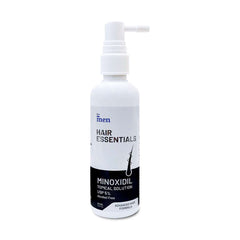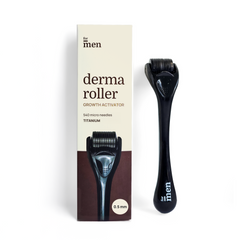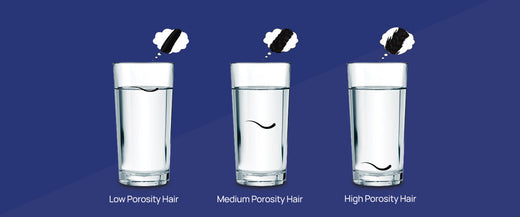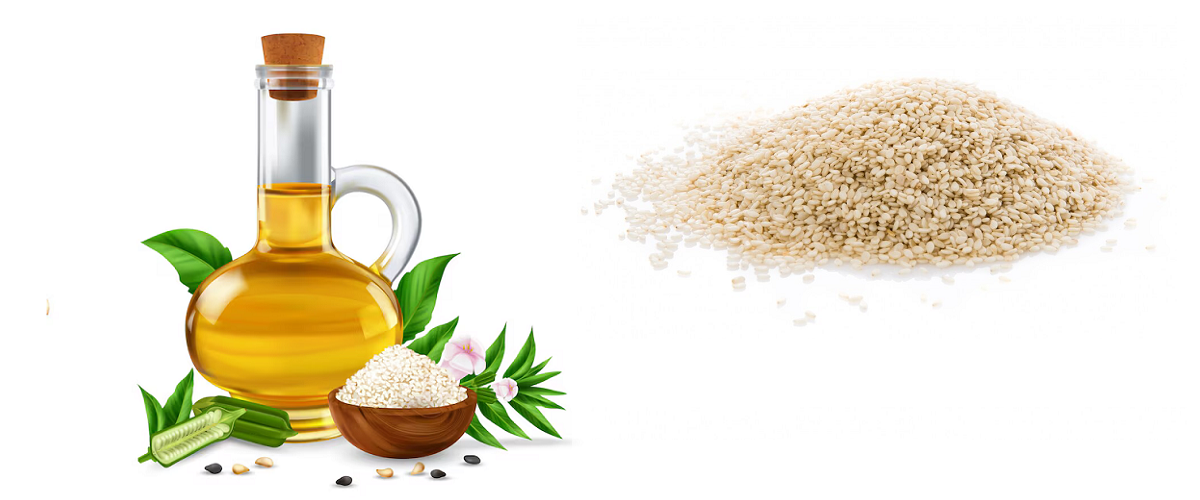Is It Possible to Regrow Hair Naturally and Quickly within 3 Weeks?
Evidence Based
All the information in this blog post is accurate, trustworthy, scientifically based and has been written and fact-checked by our experts and doctors.
Our licensed nutritionists and dietitians are committed to being objective, unbiased and honest, presenting all sides of the argument.
This article includes scientific references in brackets, which are clickable links to research papers from reputable academic organizations.

Whether you can regrow hair naturally or not, depends heavily on the reason for your hair loss and the severity of the condition. Here's a breakdown:
Factors Affecting Natural Hair Regrowth:
1. Cause of Hair Loss:
- Temporary Reasons: Hair loss due to stress, nutritional deficiencies, or hormonal changes (like postpartum) might be reversible with lifestyle changes and addressing the underlying cause.
- Permanent Reasons: Scarring, genetic conditions, or severe alopecia are unlikely to respond to natural methods alone.
2. Severity of Hair Loss:
Extensive hair loss may require medical intervention for significant regrowth.
3. Individual Factors:
Everyone's body responds differently to treatments, including natural remedies.
Natural Methods for Hair Regrowth:
While not guaranteed, some natural methods may promote hair growth or prevent further loss:
- Scalp Massage: Increases blood flow to the scalp, potentially stimulating hair follicles.
- Healthy Diet: Ensure sufficient protein, iron, vitamins A, C, and D, and omega-3 fatty acids for healthy hair growth.
- Essential Oils: Rosemary, peppermint, and lavender oils may stimulate hair growth, but research is limited.
- Aloe Vera: Its anti-inflammatory properties might soothe the scalp and promote healing.
Important Points to Remember:
- No single natural remedy is a miracle cure for hair loss.
- Consult a doctor or dermatologist to diagnose the cause of your hair loss and discuss appropriate treatment options.
- Avoid miracle cures and unproven products that could irritate your scalp or have harmful side effects.
- Be patient and realistic about your expectations. Natural methods may take time to show results, if any. It may not be possible to regrow hair naturally within 3 weeks.
How Long Does it Take for Hair to Grow?
Unfortunately, there's no one-size-fits-all answer to how long it takes for hair to grow naturally. Hair growth is a complex process influenced by various factors, making an exact timeline difficult to pinpoint.
Here's a breakdown of the key elements involved:
Factors Affecting Hair Growth Rate:
- Genetics: Your genes largely determine the natural growth rate of your hair. Some individuals naturally have faster-growing hair than others.
- Age: Hair growth tends to slow down with age, particularly after reaching your 40s.
- Hormones: Hormonal fluctuations, like those during pregnancy or menopause, can impact hair growth rates.
- Overall Health: Nutritional deficiencies, stress, and certain medical conditions can slow down hair growth.
- Hair Care Practices: Gentle care, avoiding harsh chemicals or excessive heat styling, can promote healthy hair growth.
What is the Average Hair Growth?
Based on these factors, the average healthy hair grows about 1/2 inch (1.25 cm) per month. This translates to roughly 6 inches (15 cm) per year. However, individual experiences can vary significantly.
Additional Points to Consider:
- Hair doesn't grow at the same rate on everyone's head. Scalp hair typically grows faster than other areas like eyebrows or body hair.
- Hair Goes through Different Growth Phases: The anagen phase (active growth) lasts 2-7 years, followed by the catagen (transition) and telogen (resting) phases before shedding and restarting the cycle.
- Seasonal Variations: Some people experience slightly faster hair growth during summer months due to increased sunlight and vitamin D levels.
Tips for Maximizing Natural Hair Growth:
- Maintain a healthy diet rich in essential nutrients for hair health, like protein, iron, and vitamins.
- Practice gentle hair care with scalp massages, avoiding harsh chemicals and excessive heat styling.
- Manage stress, as chronic stress can negatively impact hair growth.
- Consider consulting a dermatologist if you experience significant hair loss or suspect an underlying medical condition.
Best Home Remedies for Hair Growth that You can Try and See
While there's no magic bullet for guaranteed hair growth, several home remedies may promote hair health and potentially support natural growth. However, it's crucial to understand that the effectiveness of these methods can vary significantly based on the cause of your hair loss, its severity, and your individual biology. Consulting a dermatologist to pinpoint the cause and discuss suitable treatment options is always recommended.
Here are some home remedies with some evidence to support their potential benefits:
1. Scalp Massage:
- Stimulates blood circulation to the scalp, which may nourish hair follicles and promote growth.
- Use gentle pressure and massage oil suitable for your scalp type.
2. Healthy Diet:
- Ensure adequate intake of nutrients like protein, iron, vitamins A, B, C, D, and omega-3 fatty acids, crucial for hair health.
- Consider consulting a nutritionist for personalized dietary advice.
3. Essential Oils:
- Some oils like rosemary, peppermint, and lavender may stimulate hair growth, but research is limited.
- Always dilute essential oils in a carrier oil and perform a patch test before applying to avoid irritation.
4. Aloe Vera:
- Its anti-inflammatory properties might soothe the scalp and create a favorable environment for hair growth.
- Apply pure aloe vera gel directly to the scalp or use products containing it.
5. Other Potential Remedies:
- Green Tea: Rich in antioxidants that may promote hair health.
- Amla (Indian Gooseberry): Traditionally used in Ayurvedic medicine for hair growth, but scientific evidence is limited.
- Eggs: A good source of protein and biotin, important for hair health. However, topical application might not be as effective as dietary intake.
6. Important Caveats:
- Research on the effectiveness of these remedies is ongoing, and results may vary significantly.
- These methods are not a substitute for professional medical advice, especially if you have significant hair loss.
- Always do a patch test before applying any new product to your scalp to avoid allergic reactions.
- Be patient and realistic about your expectations. Natural methods may take time to show results and it may not be possible within 3 to 4 weeks.
Remember, focusing on overall health and healthy hair care practices can contribute to optimal hair growth within your unique genetic and biological potential. If you notice significant hair loss or suspect an underlying medical condition, consulting a dermatologist is crucial for the best course of action.
Also Read the Articles:
Disclaimer: The information provided on this page is not a substitute for professional medical advice, diagnosis, or treatment. If you have any questions or concerns about your health, please talk to a healthcare professional.

 Evidence Based
Evidence Based







Leave a comment